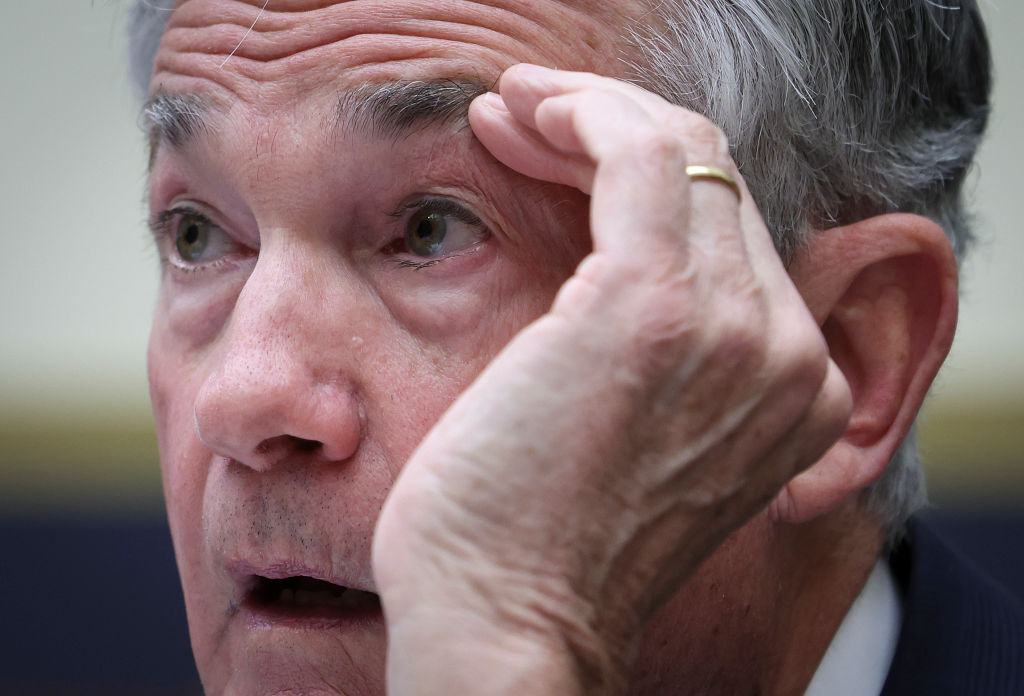Asian stocks rose after Wall Street closed higher. The Nikkei 225 index of the Tokyo Stock Exchange is confirmed as the negative exception, down by 1.25%.
The Hong Kong Stock Exchange was positive, rising by 0.52%, as was the Shanghai Stock Exchange by 0.53%. Seoul scores an increase of 0.97%, Sydney +0.66%. On Wall Street, futures are down slightly, awaiting the publication of the fourth quarter accounts of the banking giants JP Morgan, Wells Fargo, Citigroup and Bank of America.
Yesterday the Nasdaq closed higher for the fifth consecutive session, while the S&P and the Dow Jones remained positive for the third consecutive session. The reaction of the indices on Inflation Day is nervous.
Specifically, the Dow Jones Industrial Average gained 216.96 points (+0.64%), to 34,189.97; the S&P 500 rose 0.34% to 3,983.17, while the Nasdaq Composite advanced 0.64% to 11,001.10, posting its longest bull trail since July.
The Nasdaq is poised to close the week with a gain of 4.1%, while the weekly gains of the S&P 500 and Dow Jones indices are respectively equal to +2.3% and +1.7%.
The US consumer price index for December was published yesterday, which provoked an initially uncertain reaction from the US stock market which, at the start of trading, pointed downwards after the initially positive reaction of futures to the publication of the data.
Looking in detail at the US inflation numbers just released, the positive thing is that the slowdown in the growth of the consumer price index continues. On a month-to-month basis, however, core inflation reared its head in December at a stronger pace than in November.
To be precise, the headline CPI was up 6.5% year over year, compared to +7.1% the previous month.
The figure was roughly in line with expectations, as analysts polled by Bloomberg had forecast a headline CPI consumer price index up 6.6% year-on-year.
Month-on-month, inflation fell by 0.1% MoM, more than the expected flat trend.
Also slowing down on an annual basis was the growth of core inflation, i.e. inflation excluding the more volatile components represented by the prices of food and energy goods, which slowed down from 6% to 5.7%, as expected .
However, the core CPI rose on a monthly basis by 0.3%, as expected, and accelerating from +0.2% m/m in November.
In the end, operators preferred to look in favor of the drop in headline inflation, which confirms how the series of rate hikes launched by Jerome Powell’s Fed is still managing, perhaps not at the desired speed, to defuse the price boom.
Attention also to the president of the Philadelphia Fed Patrick Harker, who said he believes that the US central bank could further reduce the extent of its monetary tightening.
“I think we will raise interest rates a few more times this year – said Harker – However, in my view, the days of raising rates to the low 75 points are definitely behind us. I think 25 basis point rate hikes are appropriate, looking forward.”
The head of the Philadelphia Fed also said that, “at some point this year, I expect rates to be tight enough for us to keep them unchanged, allowing monetary policy to do its job.”
But investors are now looking more to the terminal rate than to the extent of the monetary tightening.
Fluctuations also in the US Treasuries market.
After an initial decline that even led them to fall below 3.5%, rates on 10-year Treasuries rose, catching up and exceeding the threshold, only to lose it again, falling to 3.442%. Now rates are rising again, exceeding 3.460%.
In Asia focus on the numbers relating to China’s trade balance.
Exports fell 9.9% year-on-year in US dollar terms in December, compared with the 10% decline expected by analysts polled by Reuters.
Imports fell 7.5% y/y, outperforming the 9.8% decline expected by the consensus.
China thus reported a trade surplus of $78 billion in December, better than the $76.20 billion expected, and up from $69.84 billion the previous month.
The Central Bank of South Korea announced a 25 basis point rate hike, as expected. Rates were raised to 3.50%, the highest level since December 2008.
